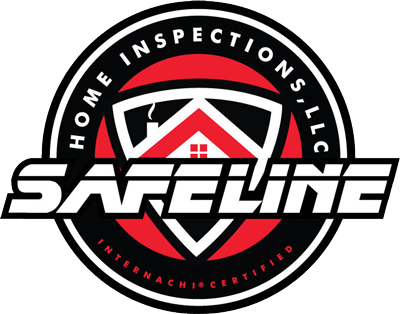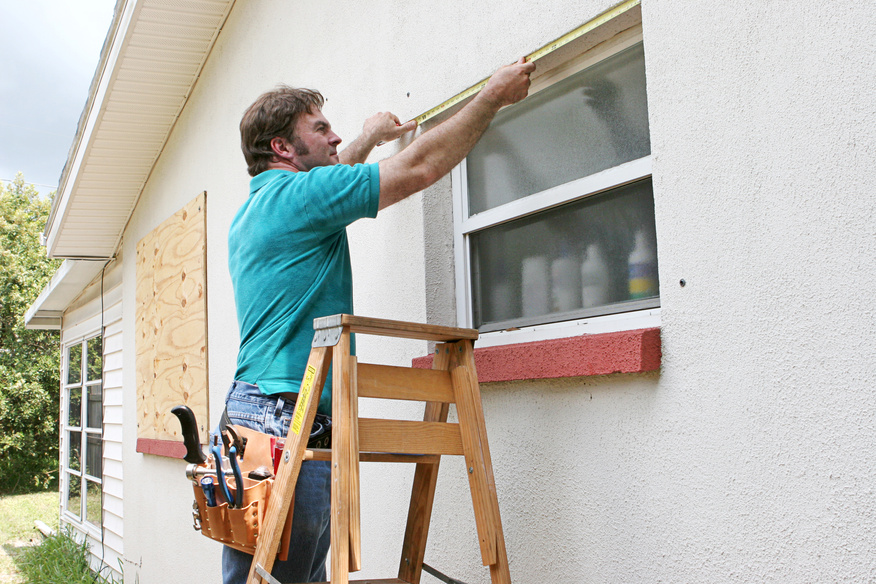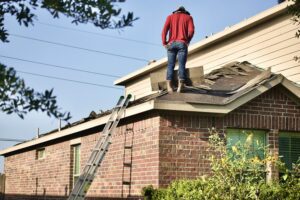How to Prepare for Florida Hurricane Season
“What hurricane? I’m sure it won’t be coming, no need to prepare”. Believe it or not, there are people who still think like this. However, this is never a wise stance. In Florida, hurricane season preparedness is key.
Being prepared for the hurricane season is more than stocking up on food supplies. In this article, we’ll discuss proven ways to be prepared for the Florida hurricane season that will keep you and your family safe.
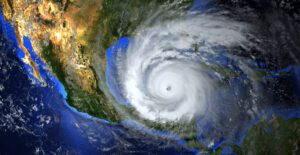
What does the term “Hurricane Season” mean?
A hurricane season speaks to a specific period each year when hurricanes are most likely to surface. The common months for hurricane season range from a little after May up until September. It’s important to note that hurricanes can surface a little before or after the expressed period so keeping up to date with news announcements is critical.
Let’s look at exactly what a hurricane is. A hurricane is a serious weather condition that most commonly forms in tropical regions.
Hurricanes are labeled dangerous because they are known to be accompanied by high winds, flooding, thunderstorms, surges, and possibly tornado formations.
Hurricanes are terribly disliked because of their known ability to easily destroy homes, communities, and personal belongings like one’s vehicle.
When a hurricane warning is issued it’s critical for residents to pay keen attention to warning zones. The warning zones tend to experience the threatening impacts of the hurricane first; therefore, it’s best to avoid last-minute Florida hurricane season preparation.
10 Active Steps to Prepare for Florida Hurricane Season
If you have recently moved to Florida and you’re new to hurricane season preparation or want to merely improve your preparation steps, here are some clear guidelines to keep you secure and ready.
1. Stock Up Smartly with Essential Hurricane Supplies:
Though stocking up isn’t everything, it is undoubtedly a critical step to preparing for the Florida hurricane season. What exactly does stocking up for a hurricane season entail? Stocking up on supplies should commence before the hurricane season. Supplies you want to stock up on include canned foods, cereals, breads, snacks, water, and juice. Power outages may likely occur during a hurricane, so your supplies must be selected with this in mind. Vital emergency kit items to store include radios, batteries, flashlights, portable phone chargers or power banks, money, generators (where possible), toiletries, and medicine/related items. Checking your storage is vital to keeping items stocked safely from becoming damaged or destroyed.
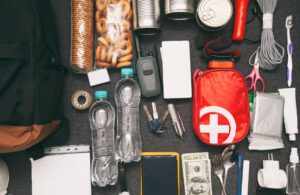
2. Proof Your Home Properly:
One thing is sure. During a storm or Hurricane, properties are highly prone to damage. Taking the necessary steps to have your property prepared means:
- Grooming Trees: The branches of trees often become a hazard when the hurricane winds begin, so the cutting of trees appropriately for the season is critical to limit damage.
- Proper Outdoor Storage: Be sure to have outside ornaments or furniture in a proper area where it cannot cause damage or harm in the event of a hurricane. Remember that during a Hurricane you will be unable to go outside to secure those items.
- Home Repairs: Where necessary, have a professional home inspection done on your home to ensure it is in a position to withstand the worst of a storm or Hurricane. The professional will point you to possible repairs like a leak or roof repairs that will be critical to rectify before the hurricane hits.
- Install Storm/Hurricane Shutters: This is vital to protecting your home from becoming damaged, particularly, the bursting of your windows. This damage could then lead to flooding, further damage, or even personal injury. For some persons, securing windows through boarding enhancement might be an option to explore.
3. Explore Insurance:
Investing in insurance for your home is essential. Home insurance helps to offset any damage that might occur during the hurricane season. Be particular about the type of insurance selected to ensure it covers adequately in the event of a claim. If you already have home insurance, check that it covers natural disasters like storms or hurricanes.
4. Be Aware of Weather Updates:
Throughout the entire hurricane season, stay tuned to any communication channel you have. This keeps you informed and aids in your storm preparation process. Some ways to stay plugged into weather alerts include social media, weather websites, and phone updates.
5. Learn Evacuation Processes:
It’s totally understandable that during a hurricane or storm, you don’t want to leave your home behind even if you’re in danger. However, it is absolutely necessary that you pay keen attention to the protocols issued as they relate to leaving your home or where you stay. Your personal safety at this time is more important.
6. Shelter:
Be sure to seek safety at a relative’s house or an approved shelter throughout the entire storm or Hurricane in the event that you are instructed to evacuate.
7. Develop a Hurricane Plan:
This helps everyone in your family to be aware of the steps to take in case of certain emergencies while the storm or Hurricane progresses. Everyone in the family needs to understand how to gain access to the first aid/emergency kit items or flashlights in the case of an emergency. Depending on your area where other protocols are necessary this needs to be discussed and understood as a family.
8. Remember Your Pets:
Don’t forget your pets when preparing for the Florida Hurricane Season. Spend the time to learn about shelters that accommodate pets in the event of an evacuation emergency. It is also necessary for you to create an emergency kit for your pets and teach other members of the family how to use or implement it.
9. Be able to clearly differentiate between a Hurricane watch and a warning:
A hurricane watch is normally issued about 48 hours before a weather system graduates to a tropical storm but shows hurricane tendency while a hurricane warning is issued within 36 hours of a tropical storm having winds that amount to the strength of a hurricane.
10. Super Yard Clean-up: Earlier, we mentioned the need to groom trees so they don’t lead to any damage or personal injury. Now we want to focus on clearing drainages, removing old leaves and clutter items that could pose a risk in the event of a hurricane.
Things that Are Often Taken For Granted During Hurricane Preparation
Though above we spoke at length about aspects of preparation that are critical, there are some aspects that are often taken for granted and ignored that could protect your home and even preserve your life and your family. Some of these things include:
- Securing water supply: Be sure to have clean drinking water and water for bathing that can last at least 3 days. Often, just enough water is made available for a day without thought being given to the fact that the water supply could be affected even days after the hurricane has passed.
- Assessing your front door: It’s easy to assume by looking at your front door that it’s sturdy enough to withstand a hurricane but getting a professional assessment could prevent detrimental surprises. The same goes for your garage door. Where possible or necessary, have it changed to one that can withstand a hurricane or be serviced accordingly.
- Establishing a safe/crawl area: Have a designated area in your home left empty so that in the case of an emergency, you may crawl comfortably to safety.
- Checking electrical systems: Though you may not be prone to flooding in your area at any time, a hurricane can do the unthinkable. With this being said, have these systems examined and see how they could be upgraded to avoid damage.
- Prioritizing mental health: Underestimating the mental strain of experiencing a hurricane, especially when you have children, can put you at a disadvantage. Instead, learn some tips ahead of a hurricane to keep you and your family upbeat to protect your mental health.
- Storing important documents: Passports, driver’s licenses, birth papers, and personal and other critical business-related documents should be secured and within reach in case of evacuation.
- Securing a fire extinguisher: This should be a part of your family plan, meaning every member should know where to locate it and how to use it effectively in case of an emergency.
- Knowing when to turn off power supplies: In the case of flooding, be sure to disconnect all electrical supplies to safeguard your appliances and yourself from harm.
- Staying inside even in the appearance of a calm environment: Though everything might seem well outside based on what you hear, don’t venture outdoors. Going outside can put you at risk of being injured. Where possible, await a formal update before going outside.
- Ensuring your vehicle is ready to go: A recently serviced vehicle and a full tank of gas are key as you stay prepared for the Florida hurricane season. It’s never wise to assume that the hurricane might not present an emergency that will involve the need for your vehicle to be ready. Your vehicle should have an emergency kit separate from the one you have inside your home. This will help you to move swiftly in case you forget the other kit. Note carefully that though your car will be ready to go in case of an emergency, it should be kept inside the garage or designated enclosed area until needed. This will keep it safe from damage.
- Not staying close to windows or glass doors: As a result of wanting to see what is happening outside, people tend to be drawn to go to their windows to look. This is by no means safe because windows and glass doors can easily become shattered and should be secured with shutters to prevent injury.
- Knowing ahead of time what to take in case evacuation becomes necessary: grab your emergency kit (remember to include extra money and important documents like identification, medicine, and chargers). If possible, also remember to disconnect your gas and electrical supply in the event of an evacuation.
- Not assuming all roads are safe after a hurricane: Before going out to drive after a hurricane, check the news to ensure that the selected area is safe for travel.
- Having your sump pump checked: For homes with basements, it’s essential that your sump pump is examined to prevent flooding.
- Not underestimating a storm surge: A storm surge can happen during a tropical storm or after a hurricane. Listen carefully to weather updates because storm surges can cause water to increase quickly and cause severe flooding that’s life-threatening.
Turn off the Anxiety and Become Entertained during a Hurricane
We spoke at length about hurricane preparedness. Now as the winds increase and those scary sounds keep you on the edge of your seat, instead of worrying, focus on some fulfilling activities like:
- Playing games: Card and board games are ideal for this season. Giant puzzles will keep everyone occupied.
- Journaling: Allow your memory and fingers to do the work. Spend time writing about the best, worst, and scariest part of your hurricane journey.
- Catch up on a book: With less to do, this is the perfect time to finish a novel you have started or rapidly start one that draws your attention.
- Storytime: A family being stuck indoors calls for listening to stories! Whether it be childhood memories or jokes, everyone is looking forward to listening and being entertained.
- Creative expression: If you have children, be sure to let them channel some of their energy to crafts such as finger painting, drawing, and coloring.
Final Thoughts
As you seek to settle in your new Florida home or you’re simply trying to hurricane-proof your old Florida home for the season, note that the preparation doesn’t have to be filled with stress and anxiety.
Preparation for the hurricane season shouldn’t be guesswork. Therefore, before starting to fix or improve any area of your home, you should have it professionally assessed to know the areas that need immediate attention.
In order to be prepared for the Florida hurricane season, you need to know the difference between terms like ‘tropical storm’ and ‘hurricane warning’. While the hurricane is in full effect, knowing what is meant by the ‘eye wall’ will let you have an idea of how things are progressing to keep your nerves under control as the hurricane goes through its natural process.
Before and during a Hurricane, keep up to date with the news to ensure you are aware of what is happening. This will ensure that you know when to evacuate your zone if that becomes necessary. Keep emergency contact numbers close by at all times as this will help if the power supply becomes an issue.
Starting early with your preparation for the Florida Hurricane Season is always best because there is a lot to do and it gives you enough time to settle instead of being overwhelmed with fear and stress.
